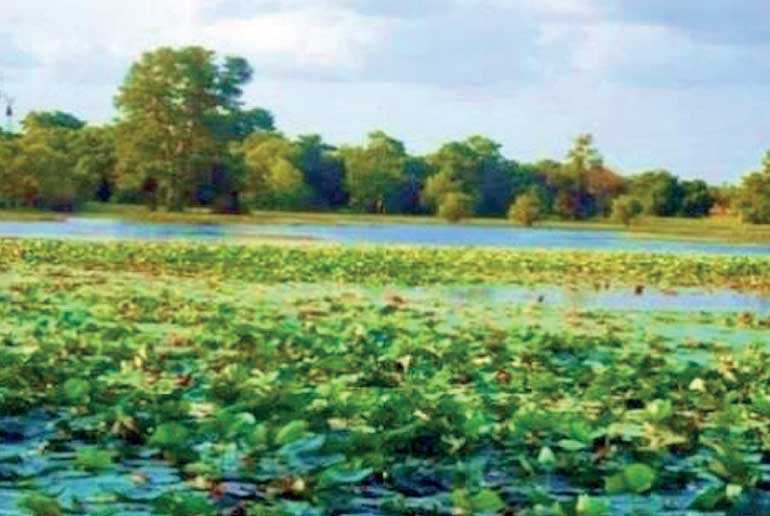Tuesday Feb 17, 2026
Tuesday Feb 17, 2026
Wednesday, 18 April 2018 02:21 - - {{hitsCtrl.values.hits}}

The Sri Lankan dry zone’s Cascaded Tank-Village System (CTVS) will tomorrow be designated as one of the 14 new globally important agricultural heritage systems by the Food and Agriculture Organization (FAO) of the United Nations at a ceremony in Rome, Italy.
The CTVS is a connected series of tanks organised within a micro-catchment of the dry zone landscape, storing, conveying and utilising water from an ephemeral rivulet. It is an ancient, widely used and unique traditional agriculture system mainly found in the dry zone of Sri Lanka. The system has evolved over a period of nearly two millennia. It provides water for irrigation, domestic purposes, animals and ecosystems.
The system (Illanga Gammana) takes dominance over all other systems due to its expansive coverage, unique technology, sustainability and resilience to natural disasters (droughts, epidemics, floods, cyclones and external invasions) high biodiversity and many other beneficial characteristics.
Tomorrow in Rome, the FAO will celebrate these Globally Important Agricultural Heritage Systems (GIAHS). Fourteen new agricultural heritage sites from China, Egypt, Japan, South Korea, Mexico, Portugal, Spain and Sri Lanka will be designated during an award ceremony that will bring together high-level officials.
FAO said that for centuries, farmers, herders, fishers and forest people have sculpted our land to create agricultural systems of exceptional aesthetic beauty preserving biodiversity and creating resilient ecosystems and a valuable cultural heritage.
All newly designated sites will be awarded certificates and country representatives will present their traditional agriculture systems. With the new sites, there will be a total of 50 globally recognised agricultural heritage systems in 20 countries.
During the forum, the participants will share their country experiences and representatives of international organisations, including the UNESCO World Heritage Center, will talk about the ecological as well as touristic and economic value of these ancestral agricultural systems.